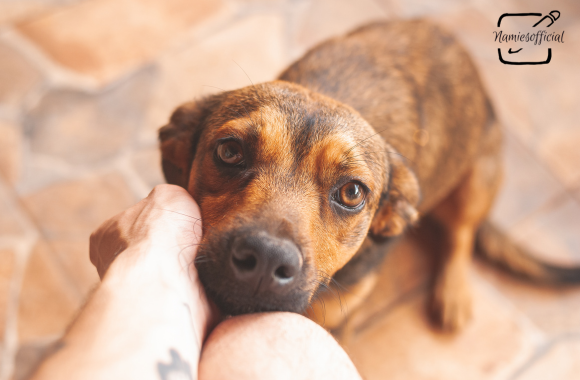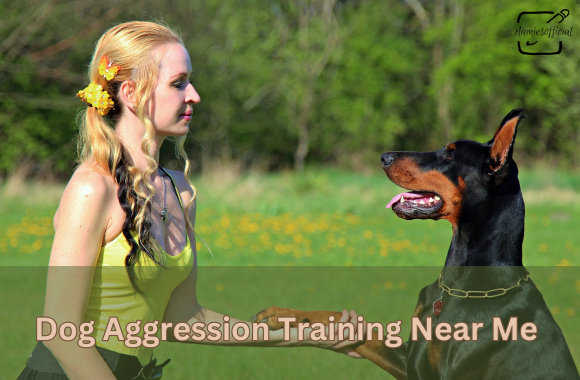Dealing with an aggressive dog can be a stressful and challenging experience for any pet owner. Aggressive behavior in dogs can manifest in different ways, including growling, barking, lunging, or biting, and it’s important to address these issues early on to prevent them from escalating. If you’re searching for “dog aggression training near me,” you’re likely looking for professional help to resolve these behaviors and ensure your dog is safe and well-behaved. In this article, we’ll explore what dog aggression training entails, the benefits, and how to find the best program in your area.

What is Dog Aggression Training?
Dog aggression training focuses on identifying the root causes of your dog’s aggressive behavior and implementing strategies to modify that behavior. Aggression can stem from fear, territorial instincts, lack of socialization, or underlying medical issues. Professional trainers who specialize in aggression can help identify the triggers for your dog’s behavior and create a personalized training plan to address the aggression effectively.
Aggression training often involves a combination of desensitization, counter-conditioning, and positive reinforcement techniques. The goal is to help your dog feel more comfortable in situations that previously triggered aggression and to teach them appropriate responses to those triggers.
Common Types of Dog Aggression
Before seeking training, it’s essential to understand the type of aggression your dog may be exhibiting:
- Fear Aggression: Dogs may become aggressive when they feel threatened or afraid. This type of aggression is often seen in dogs with a history of abuse or neglect or in dogs that haven’t been properly socialized.
- Territorial Aggression: Some dogs exhibit aggression when they feel their territory is being invaded. This can include aggression towards strangers, other animals, or even family members in some cases.
- Leash Aggression: Some dogs become aggressive when they are on a leash, often because they feel restrained and frustrated.
- Resource Guarding: Dogs may show aggression when protecting their food, toys, or even their owners from perceived threats.
- Social Aggression: Dogs that haven’t been socialized properly may struggle with interacting with other dogs or people, leading to aggressive behaviors.
Benefits of Professional Dog Aggression Training
- Expert Assessment: A professional trainer can evaluate the specific causes of your dog’s aggression and develop a tailored plan to address it.
- Improved Safety: Aggression training is essential for ensuring the safety of both your dog and those around them. Reducing aggressive behaviors lowers the risk of injury to other dogs, people, and even yourself.
- Better Socialization: A well-trained dog is more likely to interact positively with other pets and people. Training can help your dog feel more at ease in social settings.
- Peace of Mind: Knowing your dog is less likely to act aggressively allows you to enjoy time with your pet without constant worry or stress.
- Strengthened Bond: Training helps build a stronger relationship between you and your dog based on trust, respect, and communication.

How to Find Dog Aggression Training Near You
If you’re searching for “dog aggression training near me,” here are some tips to find the best local options:
- Start with Online Research: Use specific search terms like “dog aggression training near me” or “aggression rehabilitation for dogs.” This will help you identify facilities or trainers in your area that specialize in this type of behavior modification.
- Check for Certifications: Look for trainers who have experience and certification in handling aggressive dogs. Organizations such as the International Association of Canine Professionals (IACP) or the Certification Council for Professional Dog Trainers (CCPDT) are good places to start.
- Read Reviews and Testimonials: Once you’ve found a few potential trainers, read reviews from other dog owners who have dealt with similar issues. This can give you insight into how effective the training programs are.
- Visit the Trainer or Facility: If possible, visit the training facility and observe how the trainers interact with aggressive dogs. Make sure the environment is safe and conducive to positive reinforcement training methods.
- Discuss Your Dog’s Specific Needs: Meet with the trainer and provide as much information as possible about your dog’s aggression, including the types of situations that trigger it. A good trainer will assess your dog’s behavior and create a customized plan to address those triggers.
- Ask About Training Methods: It’s important to choose a trainer who uses humane, positive reinforcement methods to modify aggressive behavior. Avoid trainers who rely on punishment or forceful techniques, as these can exacerbate aggression in dogs.
- Ongoing Support: Dog aggression training isn’t always a one-time fix. Make sure the trainer offers follow-up sessions or guidance on how to continue the training at home.
Things to Consider Before Starting Aggression Training
- Severity of Aggression: The severity of your dog’s aggression will determine the length and intensity of the training needed. More serious aggression may require longer or more specialized sessions.
- Commitment: Dog aggression training requires commitment from both the dog and the owner. You’ll need to reinforce the lessons learned during the training in everyday life to see lasting results.
- Cost: Aggression training can be more expensive than basic obedience training due to the specialized nature of the training and the extra time needed to address the issue.
Conclusion
Dog aggression is a serious issue that can have significant safety implications, but with the right training and support, it can be managed effectively. By searching for “dog aggression training near me” and doing thorough research, you can find a qualified trainer who can help modify your dog’s behavior and improve their quality of life. The right program will not only help your dog overcome aggressive tendencies but also build a stronger, more positive relationship between you and your pet
Related Content:
get more on this link

